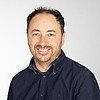Sie befinden sich hier
Inhalt
Research focus
Investigating how stem cells and their niches change is of extreme importance to understand how they behave during pathological conditions and how their malignant counterpart might actually contribute to diseases e.g. (cancer stem cells, impaired regeneration in IBD and aging). The study of stem cells in normal and pathological conditions will lead to new therapeutic avenues and more patient-tailored strategies to cure diseases.
We focus mainly on intestinal stem cells and their niche. The intestinal stem cell niche is a specialized microenvironment that is responsible for maintenance and regeneration of the intestinal epithelium and it is composed of different cell types: epithelial cells, mesenchymal cells and immune cells.
Several genetic and/or environmental factors may influence the stem cell niche, we are interested in studying how genetic and environmental factors alter the intestinal microenvironment and how these changes are translated in stem cell behavior.
In order to do so we use a combination of animal models and ex-vivo techniques that allow us to elucidate and dissect not only changes but also molecular alterations and their pathways, such as organoids, decellularized tissues, single cell RNA-seq, spatial metabolomics.
In our laboratory we investigate stem cells and their niches mainly in three different contexts: inflammatory bowel diseases (IBD), circadian rhythm and aging.
Stem cells and their niche in IBD
Inflammatory bowel diseases are a chronic condition characterized by inflammation in the digestive tract. The main types of IBD are Crohn’s disease and ulcerative colitis (CD and UC respectively). While there is no treatment for IBD, intestinal stem cells and strategies to improve mucosal regeneration represent a potential treatment option. Intestinal stem cells can give rise to all lineages in the gut and the niche or environment, modulates their function and how they will behave.
We are interested in genes that have been associated via GWAS studies to IBD. We are specifically focusing our research on how these genes affect stem cell behaviour, differentiation, the microenvironment and mucosal regeneration in IBD. By understanding how stem cells are altered by these genes we aim at restoring proper homeostasis and tissue regeneration by targeting stem cells and their behaviour or by changing their niche.
Stem cells and their niche in circadian rhythm
Circadian rhythm is composed from the ensemble of those processes that repeat rhythmically every 24 hours, from the words “circa” and “diem” which means about a day. Zeitgebers or timesetters are factors that can entrain the clock such as light and food. Circadian rhythm controls a plethora of processes such as epigenetics, metabolism and transcription; approximately 15% of our genome is oscillating in a circadian fashion. We are interested in discovering if and how food as a Zeitgeber entrains intestinal stem cells and in turn how this relates to intestinal physiology. Being the intestine the primary organ for food absorption we believe food will play a major role in entraining the gut thus opening the possibility for chronotherapy and other related therapeutic avenues.

Stem cells and their niche in aging
Aging is an inevitable process that leads to a decline in the physiological functions of the body. It is characterized by a gradual loss of tissue homeostasis and an increased susceptibility to disease. The intestinal epithelium is one of the most rapidly renewing tissues in the body, and its maintenance is crucial for overall health.
Intestinal stem cells (ISCs) play a crucial role in regenerating the gut and they have been found to decrease their functionality in aging. The epithelial stem cell niche is also altered in during aging of the gut and has been found to downregulate Wnt signaling, a crucial pathway for stem cell maintenance. We are particularly interested in other factors that alter stem cells or their niche during aging. Last but not least cancer is a disease that mostly occurs during old age therefore, it is important to study how stem cells and their niche are altered in aging and how this might give rise to increased cancer susceptibility.

In the aging intestinal crypt the expression of certain genes is remarkably altered, it is important to study these factors in order to understand how stem cell behaviour changes in aging and how tissues get predisposed to age related diseases such as cancer.
Kontextspalte
Ansprechpartner


Dr. Arnaud Descot

Yaki Wang

Qinjue Wang

Shrihar Kanikar
Doktor- und Masterarbeiten
Bei Interesse für eine Master- oder Doktorarbeit wenden Sie sich bitte an Matthias.Schewe@medma.uni-heidelberg.de
Publikationen
Publikationen der Arbeitsgruppe finden Sie unter pubmed.
